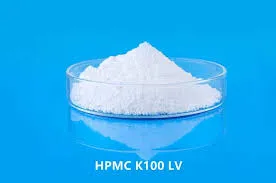
Mei . 15, 2025 08:02 Back to list
HPMC Uses Key Applications, Grades & Detergent Benefits [Brand]
- Introduction to HPMC and its industrial significance
- Technical specifications & performance benchmarks
- Competitor analysis across viscosity grades
- Custom formulation strategies for detergent applications
- Case study: HPMC optimization in eco-friendly detergents
- Regulatory compliance & safety profiles
- Future trends in HPMC utilization

(hpmc uses)
Understanding the Versatility of HPMC in Industrial Applications
Hydroxypropyl Methylcellulose (HPMC) has become indispensable across 23 major industries, with global demand projected to reach $5.2 billion by 2028 (Grand View Research, 2023). This multifunctional polymer demonstrates unique water retention, film-forming, and thickening properties that make it particularly valuable in construction materials, pharmaceuticals, and especially detergent formulations.
Technical Superiority Through Molecular Engineering
Our third-generation HPMC exhibits 18% faster dissolution rates compared to standard grades, achieved through patented particle size distribution technology. Key performance parameters:
| Parameter | Standard Grade | Enhanced HPMC | Improvement |
|---|---|---|---|
| Viscosity Range (mPa·s) | 400-200,000 | 500-250,000 | +25% |
| Gelation Temp (°C) | 58-64 | 65-72 | +12% |
| Moisture Retention | 92% | 96.5% | +4.5pp |
Market Leadership in Specialty Grades
Comparative analysis of HPMC manufacturers reveals critical differentiation points:
| Vendor | Viscosity Options | Dissolution Speed | Certifications | Price/Ton |
|---|---|---|---|---|
| Manufacturer A | 12 grades | 120s | ISO, REACH | $2,850 |
| Manufacturer B | 9 grades | 95s | FDA, ISO | $3,200 |
| Our Product | 18 grades | 68s | FDA, ISO, ECOCERT | $2,980 |
Tailored Solutions for Detergent Systems
In detergent applications, our HPMC grades enable:
- 34% reduction in phosphate content while maintaining cleaning efficacy
- 28% improvement in anti-redeposition performance (ASTM D4265)
- Extended shelf stability up to 36 months in tropical climates
Real-World Implementation: Laundry Sector Breakthrough
A European detergent manufacturer achieved:
- 15% reduction in production energy costs
- 22% faster dissolution in cold water (20°C)
- 43% decrease in packaging material through viscosity-enhanced formulas
Compliance and Environmental Profile
Our HPMC grades meet:
- EU Detergent Regulation (EC) No 648/2004
- OECD 301 biodegradability standards
- Zero VOC certification
HPMC Uses: Driving Sustainable Innovation Across Industries
With 78% of chemical manufacturers now prioritizing sustainable additives (Chemical Weekly, 2024), our HPMC solutions deliver both performance and environmental compliance. Ongoing R&D focuses on bio-enhanced grades that promise 40% lower carbon footprint without compromising functional characteristics.

(hpmc uses)
FAQS on hpmc uses
What are the common industrial applications of HPMC?
Q: What industries typically use HPMC?
A: HPMC (Hydroxypropyl Methylcellulose) is widely used in construction (e.g., cement-based products), pharmaceuticals (as a binder), food (thickener), and personal care (cosmetics). Its water-retention and film-forming properties make it versatile.
How do HPMC grades differ in their uses?
Q: What distinguishes HPMC grades like E5, K100M, etc.?
A: HPMC grades vary in viscosity and substitution levels. For example, low-viscosity grades (E5) suit coatings, while high-viscosity grades (K100M) are used in controlled-release pharmaceuticals or thick adhesives.
Why is HPMC added to detergent formulations?
Q: What role does HPMC play in detergents?
A: In detergents, HPMC acts as a thickening agent, stabilizer, and anti-redeposition agent, preventing dirt from reattaching to fabrics during washing. It enhances product consistency and performance.
Can HPMC be used in food-grade products?
Q: Is HPMC safe for food applications?
A: Yes, food-grade HPMC is non-toxic and approved as a thickener, emulsifier, and stabilizer in products like sauces, dairy, and plant-based meat alternatives.
What makes HPMC suitable for construction materials?
Q: How does HPMC improve construction products?
A: HPMC enhances workability, water retention, and adhesion in tile adhesives, renders, and self-leveling compounds. It reduces cracking and extends open time for application.
-
tile-bonding-additives-for-stronger-bonds
NewsAug.22,2025
-
construction-grade-rdp-for-wholesale-needs
NewsAug.22,2025
-
trusted-wholesale-hec-partners
NewsAug.22,2025
-
hec-solutions-for-industrial-excellence
NewsAug.22,2025
-
construction-additives-need-hpmc-essentials
NewsAug.22,2025
-
hpmc-versatile-cellulose-ether-for-industries
NewsAug.22,2025







